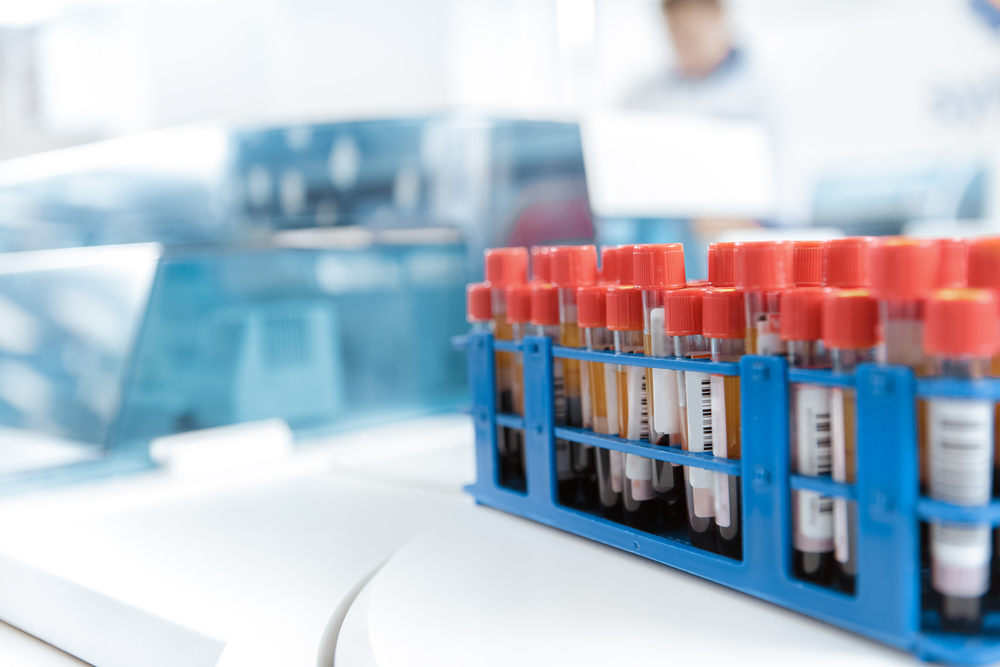Liver Function Tests: Understanding, Procedure, & Results

Liver function tests are valuable tools in assessing the health of your liver. Whether you’re experiencing symptoms of a liver disorder or simply undergoing routine check-ups, understanding the purpose and procedure of these tests is essential. In this comprehensive guide, we’ll delve into the intricacies of liver function tests, their various types, when they're used, and how they're performed.
What is a Liver Function Test?
A liver function test, often abbreviated as LFT, is a series of blood tests that evaluate the functionality of your liver. These tests measure the levels of certain enzymes, proteins, and substances in your blood that are produced or processed by the liver. By analyzing these markers, healthcare providers can assess liver health and detect any abnormalities.
When is a Liver Function Test Used?
Liver function tests are utilized for various purposes, including:
Monitoring Liver Health
Individuals with known liver conditions, such as hepatitis or cirrhosis, may undergo regular liver function tests to monitor the progression of their disease and the effectiveness of treatment.
Assessing Symptoms
If you're experiencing symptoms of a liver disorder, such as jaundice, fatigue, or abdominal pain, your healthcare provider may recommend liver function tests to investigate the underlying cause.
Routine Check-ups
Liver function tests are often included as part of routine health screenings, especially for individuals with risk factors such as obesity, alcohol consumption, or a family history of liver disease.
What are the Different Types of Liver Function Tests?
Liver function tests encompass various markers that provide insights into the health of your liver. Let's explore some of the types of liver function tests:
SGPT or ALT (Alanine Aminotransferase)
This enzyme is primarily found in the liver. Elevated levels of SGPT , also known as ALT, in the bloodstream may indicate liver damage. ALT levels are often measured to assess liver function and to diagnose conditions such as hepatitis and cirrhosis.
Albumin
Albumin is a protein synthesized by the liver. It plays a crucial role in maintaining fluid balance in the body and transporting various substances, including hormones and medications, through the bloodstream. Abnormal albumin levels may indicate liver disease or malnutrition.
ALP (Alkaline Phosphatase)
ALP is an enzyme found in various tissues throughout the body, including the liver, bones, kidneys, and intestines. Elevated ALP levels may indicate liver or bone disorders, such as liver inflammation (hepatitis) or bone disease (osteoporosis).
GGT (Gamma Glutamyl Transferase)
GGT is another enzyme found in the liver. Elevated GGT levels are associated with liver and bile duct disorders, including liver inflammation, bile duct obstruction, and alcohol-related liver disease.
Bilirubin Total
Bilirubin is a yellowish pigment produced during the breakdown of red blood cells. Total bilirubin levels include both direct (conjugated) and indirect (unconjugated) bilirubin. Elevated total bilirubin levels may indicate liver disease, bile duct obstruction, or excessive breakdown of red blood cells.
These are just a few of the markers commonly included in liver function tests. Your healthcare provider may order additional tests or panels based on your medical history, symptoms, and specific concerns regarding liver health. Interpretation of liver function test results requires careful consideration of various factors to accurately assess liver function and diagnose any underlying conditions.
What are the Symptoms of a Liver Disorder?
Recognizing the symptoms of a liver disorder is crucial for early detection and intervention. Common symptoms include:
- Jaundice (yellowing of the skin and eyes)
- Fatigue and weakness
- Abdominal pain or swelling
- Nausea and vomiting
- Loss of appetite
- Dark urine
- Pale-colored stools
If you experience any of these symptoms, especially in combination, consult your healthcare provider promptly for evaluation and appropriate testing.
How Should I Prepare for a Liver Function Test?
Preparing for a liver function test typically involves:
Fasting
Your healthcare provider may instruct you to fast for a certain period before the test, usually overnight, to obtain accurate results.
Medication Review
Inform your healthcare provider about any medications, supplements, or herbal remedies you're taking, as they might affect test results.
Follow Instructions
Follow any specific instructions provided by your healthcare provider regarding diet, medication, or activity restrictions before the test.
How is a Liver Function Test Performed?
The procedure for a liver function test is straightforward:
Blood Sample Collection
A healthcare professional will clean the injection site, usually on the arm, and insert a needle to draw a small sample of blood into a tube.
Laboratory Analysis
After that, a laboratory receives the blood sample for analysis. Technicians will measure the levels of various liver enzymes, proteins, and other markers.
Result Interpretation
Once the results are available, your healthcare provider will interpret them in conjunction with your medical history, symptoms, and other diagnostic tests to determine the status of your liver health.
Potential Risks of a Liver Function Test
Liver function tests provide very little risk and are usually safe. The most common risks include:
Discomfort
You may experience mild pain or bruising at the injection site after the blood draw.
Fainting
Some individuals may feel lightheaded or faint during or after the procedure, particularly if they're sensitive to needles or blood.
Infection
Although rare, there's a slight risk of infection at the injection site. However, healthcare professionals follow strict protocols to minimize this risk.
What are the Next Steps After a Liver Function Test?
The next steps following a liver function test depend on the results and your individual health status:
Normal Results
If your liver function tests return within the normal range, no further action may be necessary. Your healthcare provider may recommend periodic monitoring as part of routine care.
Abnormal Results
In cases of abnormal results, your healthcare provider will further investigate the underlying cause. Additional tests, imaging studies, or consultations with specialists may be recommended to determine the appropriate course of action.
Conclusion
Liver function tests play a vital role in assessing liver health and detecting potential disorders. Whether you're experiencing symptoms of a liver disorder or undergoing routine screenings, understanding the purpose and procedure of these tests empowers you to take charge of your health. By working closely with your healthcare provider and following their recommendations, you can maintain optimal liver function and overall well-being. If you have any concerns about your liver health, don't hesitate to seek medical advice promptly. Your liver plays a crucial role in your body's functioning, and taking care of it is essential for a healthy and vibrant life. If you want a liver function test, choose Asto Labs for reliable and accurate results.






